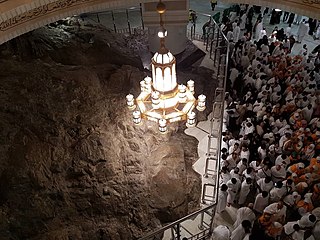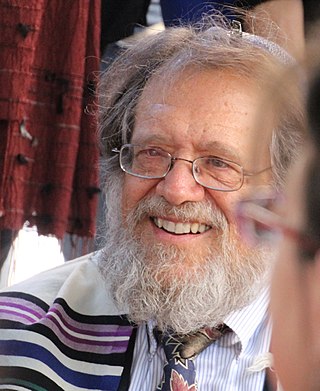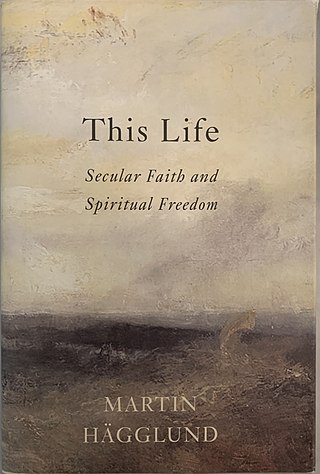
In Judaism, the concept of the Jews as the chosen people is the belief that the Jews, via descent from the ancient Israelites, are the chosen people, i.e. selected to be in a covenant with God. The idea of the Israelites being chosen by God is found most directly in the Book of Deuteronomy as the verb baḥar (בָּחַר), and is alluded to elsewhere in the Hebrew Bible using other terms such as "holy people". Much is written about these topics in rabbinic literature. The three largest Jewish denominations—Orthodox Judaism, Conservative Judaism and Reform Judaism—maintain the belief that the Jews have been chosen by God for a purpose. Sometimes this choice is seen as charging the Jewish people with a specific mission—to be a light unto the nations, and to exemplify the covenant with God as described in the Torah.

Christianity began as a movement within Second Temple Judaism, but the two religions gradually diverged over the first few centuries of the Christian Era. Today, differences of opinion vary between denominations in both religions, but the most important distinction is Christian acceptance and Jewish non-acceptance of Jesus as the Messiah prophesized in the Hebrew Bible and Jewish tradition. Early Christianity distinguished itself by determining that observance of halakha was not necessary for non-Jewish converts to Christianity. Another major difference is the two religions' coneptions of God. The Christian God consists of three persons of one essence, with the doctrine of the incarnation of the Son in Jesus being of special importance. Judaism emphasizes the Oneness of God and rejects the Christian concept of God in human form. While Christianity recognizes the Hebrew Bible as part of its scriptural canon, Judaism does not recognize the Christian New Testament.

Judaism is an Abrahamic, monotheistic, and ethnic religion comprising the collective religious, cultural, and legal tradition and civilization of the Jewish people. It has its roots as an organized religion in the Middle East during the Bronze Age. Modern Judaism evolved from Yahwism, the religion of ancient Israel and Judah, by the late 6th century BCE, and is thus considered to be one of the oldest monotheistic religions. Judaism is considered by religious Jews to be the expression of the covenant that God established with the Israelites, their ancestors. It encompasses a wide body of texts, practices, theological positions, and forms of organization.

Sociology of religion is the study of the beliefs, practices and organizational forms of religion using the tools and methods of the discipline of sociology. This objective investigation may include the use both of quantitative methods and of qualitative approaches.

There is no established formulation of principles of faith that are recognized by all branches of Judaism. Central authority in Judaism is not vested in any one person or group - although the Sanhedrin, the supreme Jewish religious court, would fulfill this role if it were re-established - but rather in Judaism's sacred writings, laws, and traditions.
The relationships between the various denominations of American Judaism can be conciliatory, welcoming, or even antagonistic.
Modern Orthodox Judaism is a movement within Orthodox Judaism that attempts to synthesize Jewish values and the observance of Jewish law with the secular, modern world.

Michael Lerner is an American political activist, the editor of Tikkun, a progressive Jewish interfaith magazine based in Berkeley, California, and the rabbi of Beyt Tikkun Synagogue in Berkeley.
Fideism is an epistemological theory which maintains that faith is independent of reason, or that reason and faith are hostile to each other and faith is superior at arriving at particular truths. The word fideism comes from fides, the Latin word for faith, and literally means "faith-ism". Philosophers have identified a number of different forms of fideism. Strict fideists hold that reason has no place in discovering theological truths, while moderate fideists hold that though some truth can be known by reason, faith stands above reason. Fideism is historically associated with some forms of Protestantism, but is rejected by the Catholic Church as heretical.

Tikkun is a quarterly interfaith Jewish left-progressive magazine and website, published in the United States, that analyzes American and Israeli culture, politics, religion, and history in the English language. The magazine has consistently published the work of Israeli and Palestinian left-wing intellectuals, but also included book and music reviews, personal essays, and poetry. In 2006 and 2011, the magazine was awarded the Independent Press Award for Best Spiritual Coverage by Utne Reader for its analysis of the inability of many progressives to understand people's yearning for faith, and the American fundamentalists' political influence on the international conflict among religious zealots. The magazine was founded in 1986 by Michael Lerner and his then-wife Nan Fink Gefen. Since 2012, its publisher is Duke University Press. Beyt Tikkun Synagogue, led by Rabbi Michael Lerner, is loosely affiliated with Tikkun magazine. It describes itself as a "hallachic community bound by Jewish law".

Progressive Christianity represents a post-modern theological approach, and is not necessarily synonymous with progressive politics. It developed out of the liberal Christianity of the modern era, which was rooted in the Enlightenment's thinking. Progressive Christianity is a "post-liberal movement" within Christianity that "seeks to reform the faith via the insights of post-modernism and a reclaiming of the truth beyond the verifiable historicity and factuality of the passages in the Bible by affirming the truths within the stories that may not have actually happened."

Jonathan Henry Sacks, Baron Sacks was an English Orthodox rabbi, philosopher, theologian, and author. Sacks served as the Chief Rabbi of the United Hebrew Congregations of the Commonwealth from 1991 to 2013. As the spiritual head of the United Synagogue, the largest synagogue body in the United Kingdom, he was the Chief Rabbi of those Orthodox synagogues but was not recognized as the religious authority for the Haredi Union of Orthodox Hebrew Congregations or for the progressive movements such as Masorti, Reform, and Liberal Judaism. As Chief Rabbi, he formally carried the title of Av Beit Din (head) of the London Beth Din. At the time of his death, he was the Emeritus Chief Rabbi.
In the Baháʼí Faith there are two covenants, deemed the 'greater' and 'lesser'. The greater covenant refers to an agreement of progressive revelation: that God will send messengers about every thousand years, and it is humanity's duty to recognize them and respond to their teachings. The lesser covenant is the agreement between the faith's founder, Baháʼu'lláh, and his followers, regarding the succession of leadership and the maintenance of unity.
The Baháʼí teachings represent a considerable number of theological, ethical, social, and spiritual ideas that were established in the Baháʼí Faith by Baháʼu'lláh, the founder of the religion, and clarified by its successive leaders: ʻAbdu'l-Bahá, Baháʼu'lláh's son, and Shoghi Effendi, ʻAbdu'l-Bahá's grandson. The teachings were written in various Baháʼí writings. The teachings of the Baháʼí Faith, combined with the authentic teachings of several past religions, are regarded by Baháʼís as revealed by God.
Criticism of Judaism refers to criticism of Jewish religious doctrines, texts, laws, and practices. Early criticism originated in inter-faith polemics between Christianity and Judaism. Important disputations in the Middle Ages gave rise to widely publicized criticisms. Modern criticisms also reflect the inter-branch Jewish schisms between Orthodox Judaism, Conservative Judaism, and Reform Judaism.

The Network of Spiritual Progressives(NSP) is an international political and social justice movement based in the United States that seeks to influence American politics towards more humane, progressive values. The organization also challenges what it perceives as the misuse of religion by political conservatives and the anti-religious attitudes of many liberals. In the international sphere, the NSP seeks to foster inter-religious understanding and work for social justice.
Spiritual left refers to a spiritually or religiously based position that shares the social transformative vision of the left and its commitment to social justice, peace, economic equality, and ecological consciousness, but who base their commitment on spiritual or religious traditions.
The argument from religious experience is an argument for the existence of God. It holds that the best explanation for religious experiences is that they constitute genuine experience or perception of a divine reality. Various reasons have been offered for and against accepting this contention.
The relationship between Judaism and politics is a historically complex subject, and has evolved over time concurrently with both changes within Jewish society and religious practice, and changes in the general society of places where Jewish people live. In particular, Jewish political thought can be split into four major eras: Biblical, Rabbinic, Medieval, and Modern.

This Life: Secular Faith and Spiritual Freedom is a book by philosopher Martin Hägglund, which pursues a critique of the religious ideal of eternity and reconceives faith in secular terms as the fundamental form of practical commitment. Through new interpretations of G.W.F. Hegel, Karl Marx, and Martin Luther King Jr., Hägglund develops the social and political stakes of his analysis of our temporal existence, arguing that labor under capitalism alienates us from our finite lifetime. Calling for a revaluation of our values, Hägglund presents a novel vision of democratic socialism as a post-capitalist form of life in which we could truly own our time and recognize our shared freedom.










